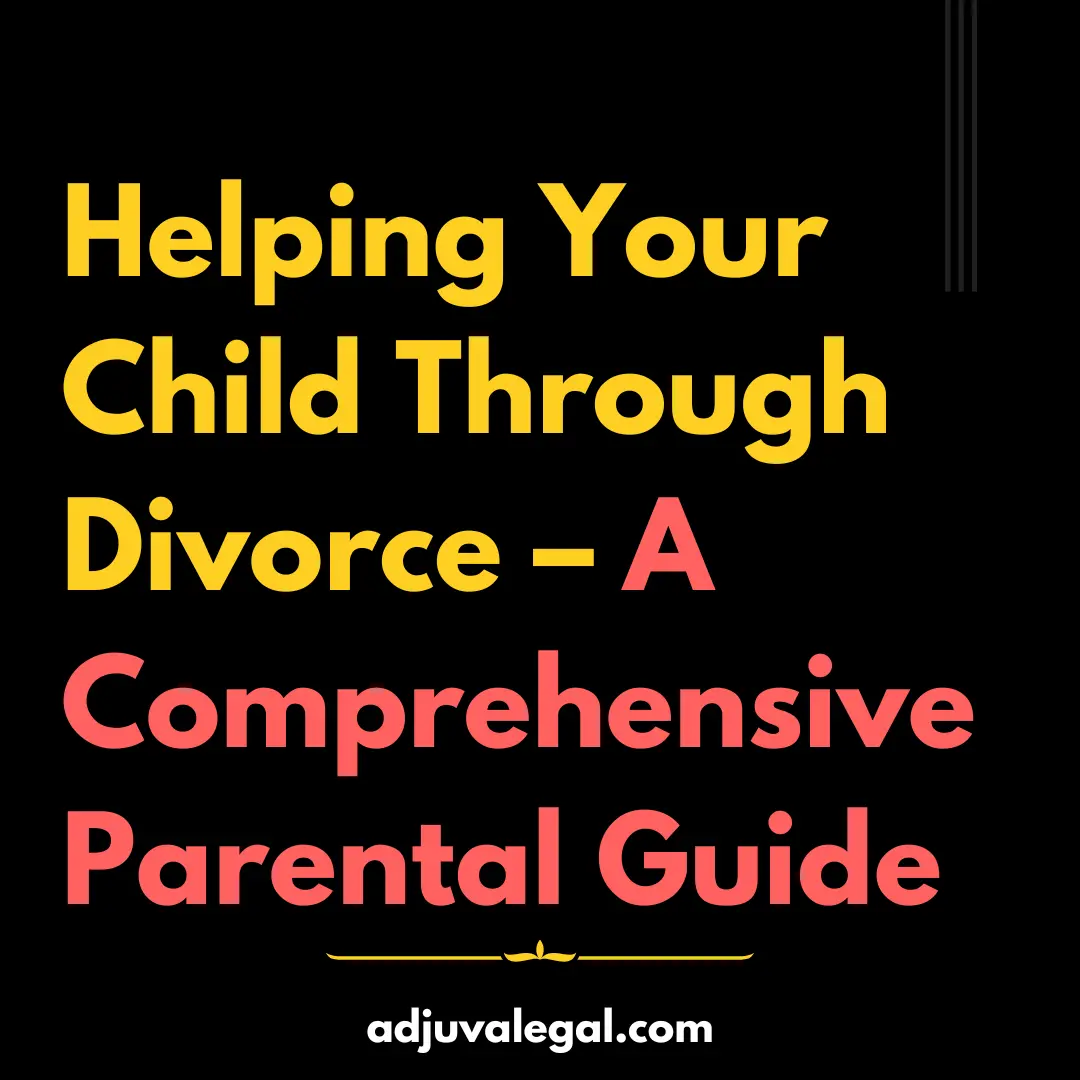Are you both considering a divorce mutually or confused about child custody or maintenance or any terms? Think of us as your ‘lawyer friend’ and read this article that way only.
Also, if you have decided finally to get separated, please fill this form and get petition same day.
Divorce is a hard process to go through for any couple. It’s not something that you want to do and it’s not an easy decision, but mutual divorce in India is the way to go if you are trying to move on with your life and don’t have anything left in common with your partner.
In this article, we will discuss what divorce by mutual consent also commonly known as mutual divorce is, how much time it takes, the fee involved, and provide some tips on how you can make the whole process easier for everyone involved!
1. What is a Mutual Divorce?
No one can know everything, especially when you are talking about the legal process in India. So, the basic question is What actually is a divorce by mutual consent or mutual divorce in India?
There are various theories under which one can obtain a divorce but, divorce by mutual consent is one of the most convenient and preferred theories used to obtain a divorce. Under this theory, the consent of the parties to the marriage is of utmost importance.
In this divorce, the word ‘consent’ means the opinions of both the parties to be in the favour of the same which is, that they amicably agree amongst themselves that they cannot live anymore.
They mutually agree and genuinely desire to get rid of each other. They come to a conclusion that they no more wish to live together and the best solution is to seek divorce for both of them to be in a better place and environment to live in.
According to this theory, the husband and wife should file a joint petition for divorce by mutual consent with the help of consultation of a lawyer in the family courts.

2. Can Mutual Divorce Be Done On Stamp Paper?
NO! The mutual consent divorce can not be done on stamp paper. It is a legal process and hence it needs to be done via the family courts only. Please do not fall into the trap of any agent who claims that law or any other related to it can be done with stamp paper.
This is the most common misconception in India right now. Our team gets one call daily saying “I will sign on the stamp paper and end this marriage, is this the right way?”.
That’s not how it is done.
These stamp paper hoax things are very common in practice nowadays therefore you need to be extra alert while taking any legal advice.
Yes, it can be, if the customary laws allow so.
3. How Much Does Mutual Divorce Cost In India?
The cost of mutual divorce can vary depending on how it is done.
The overall cost of mutual divorce can range from thousands to lakhs till you get the decree. But why pay more when we are here for you.
We lead in providing paper preparation to divorce decree at a fixed amount – no extra cost and no hidden charges.

This topic is going to be long but important. Read carefully – and if you get bored, better send a text to us.
There are many factors that determine how much a mutual consent divorce costs in India but basically, there is no fixed answer here since the cost of mutual consent divorce can vary from person to person.
Cost of Mutual Divorce – Key Points
Costs vary from lawyer to lawyer and are specific to a number of factors, including:
-
- The location where the divorce process is taking place. Different courts in India have different predefined fees.
-
- The court’s jurisdiction is based on the client’s state. Well, if you are a husband and living in a different city than that of your wife then you have to come to the family court located in your wife’s area which might add to the expenses as you need to appear many times there.
-
- The experience of your advocate who is dealing with divorces. The more cases he has experience with, the heavier it will be on your purse.
-
- Your own personal financial situation and how much legal fees concern you more than anything else.
This is actually the most important point, as anyone would and should check one’s balance before progressing in divorce legalities.
-
- Whether the case is uncontested or contested. In this divorce, which is uncontested, the cost will be lesser if everything goes smoothly.
-
- How quickly one party responds to requests for information or the time taken by one party in providing information.
Yes, it’s mutual, right? Then both of you should cooperate with each other when it comes to providing documents and being present in court. Else, the cost will rise as the number of days passes.
Attention! You both need to be cooperative and responsive.
It is in the best interest of both parties that they cooperate with each other when it comes to providing documents and being present in court, else costs will rise as days pass by.
What is a divorce lawyer fee?
A lawyer would cost you more in case of contested divorce than in mutual divorce. So it will be better to opt for mutual consent divorce if there are no fights or disagreements!
The fee may remain the same or go lower depending on how well things progress between two parties who are trying to agree upon everything themselves.
Why you should hire us as your legal service provider? Must read.
But there’s always a risk involved that nobody wants to take, so better make sure all your points are ironed out before proceeding ahead.
More often than not – such cases are usually cost-effective.
4. What Is The Procedure Of A Mutual Divorce?
The process of a divorce by mutual consent in India is
1) The first is, a joint petition to be filed by mutual agreement between both parties to seek divorce by mutual consent.
2) The appearance of both the parties before the honourable court of analysing the filed documents and petition.
3) After scrutinization of the petition, an order shall be passed by the courts for recording the statements of the parties under oath.
4) After the passing of the first motion, a period of 6 months is provided to the parties before the second motion is passed.
5) This is followed by a second motion and a final hearing of the matter.
6) The courts on being satisfied by the truthfulness of the statements made in the petition may grant a decree of divorce.

You can save this picture also. We won’t claim copyright.
This procedure and laws for divorce can be followed in family courts with the help of the consultation of divorce lawyers. We can be the best option for you because of our unmatched quality service and the most transparent fee structure in entire India.
Now, let’s deal with the personal procedure, which is our main focus here.
Every divorce process is different, but there are a few important steps that must be followed in gaining mutual consent from both parties before the court can grant them a divorce decree.
Personal procedure –
-
- The first step involves settling all outstanding matters of property and assets like bank accounts, retirement policies, insurance policies, life insurances, wills, etc.
-
- Secondly, deciding on which parent will take care of the children if any as this may determine future arrangements over custody issues!
-
- Careful consideration needs to go into how finances would work post-divorce so it becomes easier for each party to move forward as an individual.
-
- There may be more such processes as this is a personal agreement between both spouses.
A common misconception is that when divorcing through mutual consent there has to be some sort of agreement or settlement with regard to property, children, etc – before applying for the decree from the court.
What most people don’t know is while there are no settlements needed before filing for final orders, these may need negotiation during the trial (court).
Moreover, courts do not decide custody based only on who wants the children more, but rather on the best interest of the child.
Laws
In India, divorce by mutual consent under Hindu law is obtained through Section 13B of the Hindu Marriage Act, 1955.
Similarly, there are various laws and acts which are followed by a wide range of people based on their caste.
Christians can seek divorce under Indian Divorce Act, 1869 and the Indian Christian Marriage Act, 1872. Whereas Muslims are governed by the Personnel laws of Divorce and also the Dissolution of Marriage Act, 1939. Similarly, Parsi’s Parsi Marriage and Divorce Act, 1936 is followed.
Apart from all the specified castes people belonging to two different castes can obtain a divorce under the Special Marriage Act, 1954.
In India, divorce by mutual consent is said to be the most convenient as it is affordable to a wide range of people and is less time-consuming as compared to the procedure and complexity of contested divorce.
5. Can Mutual Divorce Be Applied Online?
NO! But the petition-making part can be done online.
See, there is a difference between applying in court and registering with a law firm or service provider.
Technically, you are not applying for divorce on our site but registering for paperwork and further processes.
A mutual consent divorce can only be applied in court, offline.
Though during COVID 19 situation, courts allowed online applications via their sites but at very few places.
Many online law firms and documents providers like ours are nowadays offering this facility of first registering on their site and then proceeding the thing further. Register for mutual divorce.

A lot of good things come with these online service providers. Our website provides features like –
-
- Simple step-by-step instructions to fill the mutual divorce form
-
- Everything on the mutual divorce petition is written in plain language
-
- Free eBook on ‘Marriage and Divorce’ containing 100 questions and answers
-
- A proper, well-written and professional joint petition is just a few clicks away
-
- Getting mutual divorce papers instantly within a few hours
-
- Update your mutual divorce petition as and when needed for FREE
-
- Protect yourself from getting any legal troubles
-
- Store your mutual divorce petition online with us safely and confidentially
-
- Submit forms freely – Highly secured and protected site
-
- Make 100% safe payment with 24/7 support
Yes, the age-old boring method is getting renovated – the time is changing and so is the legal world.
Make the most of the online world to avoid any extra stress that you might already have due to this tough time.
We will take care of all your paperwork so that you can focus on yourself or what’s important to you at this time. Book your free legal consultation.
6. Can Divorce by Mutual Consent be Done After 6 months of Marriage? or 2 Months? or Next Day of Marriage?
No, it cannot be done after six months of marriage. Not even 11 months.
Actually, this divorce has nothing to do with the time of marriage but that of separation.
There should be at least 12 months of separation before one can file for a divorce by mutual consent. You may fill the form and we will prepare Memorandum of Understanding (MoU) if you both are not separated for one year. This MoU will act as an evidence of separation.
So, you need to be living apart for a year to proceed with the divorce by mutual consent proceedings. Before this period, an MoU or contested divorce can be the only options.
Has the one-year separation not passed yet? File for contested divorce – take help from us.
The honourable Supreme Court of India has time and again delivered revolutionary judgments where the required condition of one-year separation has been waived off.
This means you may file for mutual consent divorce even if the statutory period of one-year separation has not been passed if the court allows so. This depends totally upon the discretion of the court.
7. Can Mutual Consent Divorce Be Withdrawn?
Yes, anytime.
The petition for mutual divorce in India can be withdrawn any time before the decree for mutual divorce is passed.
See, the most important thing in this type of divorce is consent, right?
So, if any one of you wants to withdraw or changes your mind not to proceed further or give it some time, there remains no consent then.
There will be no point in proceeding further with the Divorce by mutual consent when there is no consent anymore.
(Consent = noun [ U ]UK /kənˈsent/ US /kənˈsent/ = permission or agreement)
Therefore, it would be advisable to keep in mind that if you are not sure about your decision and want time to think of what’s best for yourself, then withdraw your petition from the court first by giving written notice.
8. How Much Time Does Mutual Divorce Take In India?
Mutual divorce is a process that can be completed in about 6 to 18 months.
However, practically, it also depends on the caseload at a particular time and the court where you are filing your petition.
In the case of Mutual Divorce, generally, the time duration might be a minimum of approx. 7 months of which 6 months’ tenure is a cool-down period.
Get divorce petition in one day. Also get 1. Free delivery of papers 2. Unlimited updates and support 3. eBook on Marriage and Divorce and 4. Full refund if cancelled within 30 minutes. (All in ₹1,000)
Cooling off period in mutual divorce
The cooling-off period in divorce by mutual consent in India means the period of six months from the First Motion.
The intention of the court is to provide the couple with the last chance to reconsider this step as the basic intent of the act is to save the marriage.
Thus the couple gets a time frame during which they decide if they want to withdraw their petition.
This period also provides an opportunity for reconciliation and compromise, before finalizing divorce procedures by mutual consent under section 13B of the Hindu Marriage Act 1955.
This period can be extended to a maximum of 18 months.
But If you both have decided to get separated and want to waive off the cool-down period of six months we can apply that but it is totally upon the discretion of the court to allow that and if it is allowed by the court then everything can be done within 2 months.
We can always file for a Waiver Application to waive off this cooling period – but that would completely depend upon the court.
In very rare situations only, the court may waive off this 6 months time and directly order the next step.
9. What Are The Documents Required for Divorce by Mutual Consent?
Documents required for Divorce by Mutual Consent in India are as follows-
a) A joint petition in the family court.
b) An affidavit to be filed jointly declaring the desire and willingness of both parties to proceed with the mutual divorce process.
c) Copy of identity card or passport-like Aadhaar Card, Voter ID/Ration Card etc.
d) Marriage Registration Certificate – this is optional and not mandatory but if you have registered your marriage then the certificate shall be attached.
e)Marriage Photographs and Wedding Card.
If you are taking the help of an advocate you will be briefed by him about the documents but one must have a rough idea of what papers one has to arrange beforehand.
10. What is Second Motion and Divorce Decree?
By now, you know that there have to be two motions before a mutual divorce decree.
Once the first motion has been passed and the cooling-off period is elapsed then a fresh petition of the second motion is presented in the court attaching the order of the first motion.
After properly scrutinising the case, the previous order, facts and circumstances, the court grants a decree.
This decree officially signifies the end of a marriage and mere signing on a stamp paper does not.
“Only I can change my life. No one can do it for me.” – Carol Burnett
Conclusion
Mutual divorce in India is a process that can be completed relatively quickly and without too much expense.
However, it is important to understand the process and requirements involved before initiating proceedings. If you are considering a mutual divorce, please consult with an experienced lawyer to ensure that your interests are protected.
Get a free consultation on this number.
We Promise To Save Your Money! Save Your Privacy! Save Your Future!
FAQs on Mutual Divorce
What is the process for mutual divorce in India?
The process for mutual divorce in India involves both parties filing a joint petition for divorce in the appropriate family court. Both parties must state that they have been living separately for at least one year and have mutually agreed to the dissolution of the marriage. The court will then hear the matter and, if satisfied, grant the divorce.
How long does it take to get a mutual divorce in India?
The time it takes to get a mutual divorce in India can vary depending on the specific circumstances of the case and the court’s schedule. Typically, it can take anywhere from six months to two years for the divorce to be granted.
Are there any specific documents required for a mutual divorce in India?
Yes, there are certain documents that are required for a mutual divorce in India. These include the joint petition for divorce, a copy of the marriage certificate (if available), a copy of the husband and wife’s Aadhaar cards as proof of residence, and 4 photos of both the spouses.
Can a mutual divorce be obtained without the consent of both parties?
No, a mutual divorce can only be obtained with the consent of both parties. If one party does not consent to the divorce, the case will be handled as a contested divorce.
Is it necessary to hire a lawyer for a mutual divorce in India?
It is not strictly necessary to hire a lawyer for a mutual divorce in India, but it is highly recommended. A lawyer can help navigate the legal process and ensure that all necessary documents are filed correctly and on time. They can also provide legal advice and representation in court, if necessary.
Can a mutual divorce be filed in any court in India?
No, a mutual divorce must be filed in the appropriate family court. The jurisdiction of the court will depend on the residence of the parties and the place where the marriage was registered. It is important to file the divorce petition in the correct court to avoid any delays or complications in the process.
Is mediation required for a mutual divorce in India?
Mediation is not a mandatory requirement for a mutual divorce in India, but it may be ordered by the court if both parties agree or if the court feels that it is necessary. Mediation can be helpful in resolving any disputes and coming to an amicable agreement on issues such as custody, alimony, and property division.
Can the mutual divorce be withdrawn once the petition is filed?
Yes, the mutual divorce petition can be withdrawn at any stage before the court grants the divorce. Both parties must file a joint application for withdrawal of the petition and the court must approve it. Even if one party withdraws his or her consent, it is no more a mutual divorce.
Can the mutual divorce be fast tracked?
There is no provision for fast tracking a mutual divorce in India. However, if both parties are willing to agree on all the terms of the divorce, the process may be completed relatively quickly.
Are there any special laws for mutual divorce for non-residents of India?
There are no special laws for mutual divorce for non-residents of India. Non-residents can file for mutual divorce in India under the same process as residents. However, they may need to provide additional documentation to prove their residence and jurisdiction. It is advisable to consult with a lawyer experienced in handling divorce cases for non-residents.
Can we cancel the Mutual Divorce?
Scenarios:
-
Before Filing the First Motion Petition: If you and your spouse have agreed on a mutual divorce but haven’t yet filed the petition, you can simply decide not to proceed. There are no legal complications at this point.
-
During the Cooling-Off Period: There’s a mandatory 6-month cooling-off period after filing the first motion petition. During this time, either spouse can unilaterally withdraw consent for the divorce without needing to provide a substantial reason.
-
After the Cooling-Off Period, Before the Final Decree: If the cooling-off period has passed and you want to cancel the divorce, things become more complicated. You’ll need to demonstrate compelling reasons to the court, such as:
- Consent being obtained through fraud or coercion
- Significant changes in circumstances that warrant reconsideration
-
After the Final Decree: Once the court grants the final decree, the divorce is considered legally finalised. In most cases, cancelling the divorce at this stage is extremely difficult, if not impossible.












